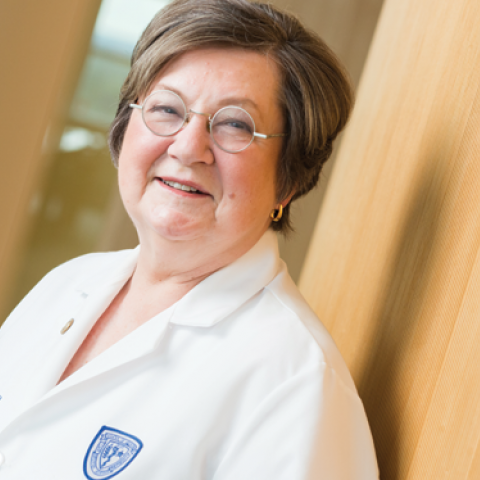This weekend, we heard the projected impact of COVID on the University’s finances from President Snyder. The COVID sickness must be countered, and the remedies the University have crafted are significant reductions in operating budgets, suspension of retirement contributions for faculty and high-level staff, furloughs, and more. They prescribe these fixes to ensure the University's survival.
The Sunday New York Times Review had an entire two-page spread devoted to higher education. One article proposed that to save advanced learning, a college education must become free. Another worried that in the eagerness to have technology and science conquer all our woes, the humanities would be lost. And a third demanded that the richest colleges spend more, not less, of their endowments to see them through this crisis, and denounced hoarding this resource.
Right here in the School of Medicine, faculty seek greater transparency to the elements that went into the University's cost-saving strategies and their universal application across all schools. They worry that each school is unique and a universal approach, while fair on the surface, does not capitalize on the differential contributions that the different schools could make to solve the problem. Some of our students produced a white paper supporting free tuition for the medical school, to partially redress racial and socioeconomic disparities in medicine and specialty selection. Yet some of our supporters ask whether that would be the highest and best use of the vast sum of money required to implement that decision (about a $1 billion endowment)—if we had that money!
Other students write to demand more African American faculty and advisers, stronger support systems, and greater transparency in how scholarship dollars are distributed. They want support to develop physicians that more closely resemble the makeup of the community. Some worry that the COVID crisis will overshadow or delay other important programs at the School and the University. Many voices from different quarters raise a cacophony of concerns, each legitimate in its own context, sometimes conflicting, and all raising the level of anxiety.
My grandmother used to say that when there are arrows coming at you from all sides, ask yourself why you are standing there getting shot at in the first place. So, I did.
We are here to train the next generation of the very best doctors anywhere. To that, we added training of health care professionals, scientists, and Master’s level students who are the backbone of bioscience and ethics.
We are here to conduct groundbreaking research and to see that if at all possible, the breakthroughs come forward to benefit patients.
We are here to improve the health of our community.
The privilege of accomplishing these three goals is why we stand fast in the path of the arrows. Our best contribution to the University will not be the expense reductions they require, but our growing research portfolio and the great discoveries it brings, the cadre of wonderful students we train, and the community health that inches better because of our efforts.
As for the money, we are pretty much on target, too. This fiscal year, the School of Medicine will post about a $2M deficit, as originally budgeted. Next year, even given the challenges to our revenue and with vigorous control of our expenses, we will project a substantial surplus, as required by the University. As we await the departmental budgets, we can’t yet say how much for sure. But without a doubt—we will be part of the solution and not contribute to the problem.
Thank you for all your work. Keep up that great research and critical education, conduct your exemplary patient care, and continue working to improve the health of our community. Just let the arrows whiz by.
Pam


